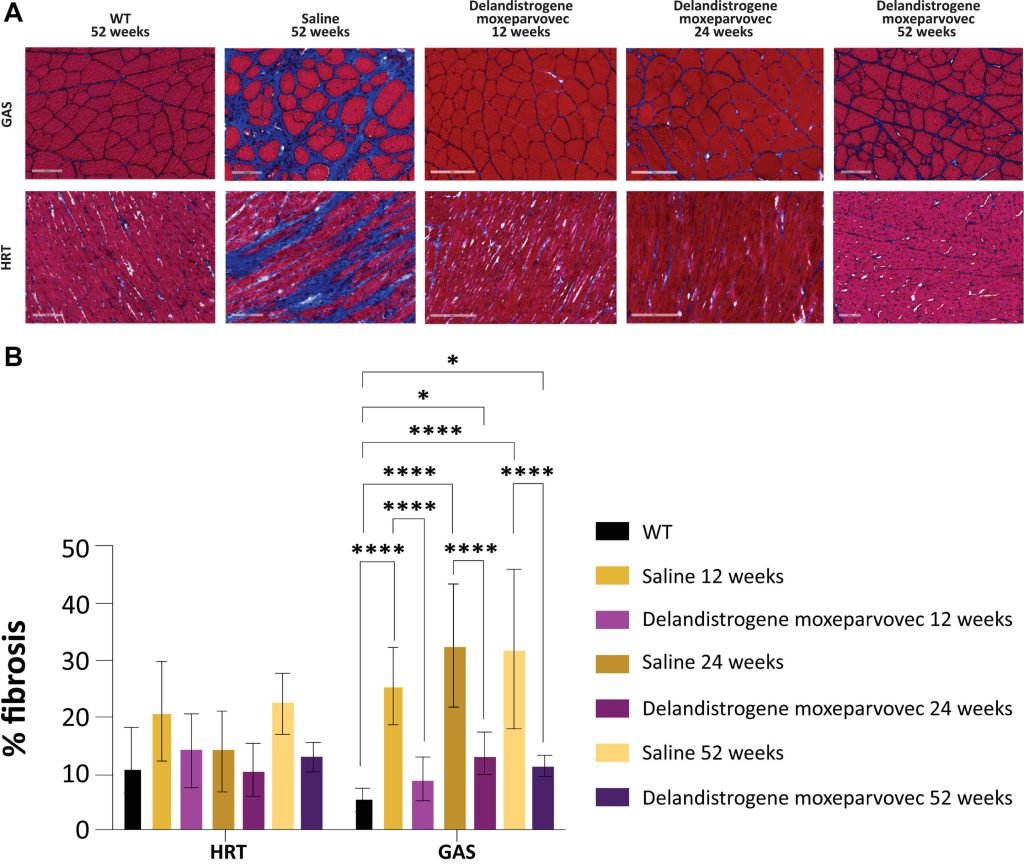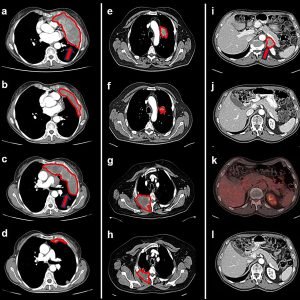
A recent study published in the journal Human Gene Therapy evaluated the long-term survival and cardiac efficacy of the gene therapy delandistrogene moxeparvovec in a rat model of Duchenne muscular dystrophy (DMD).
Delandistrogene moxeparvovec uses an adeno-associated viral (AAV) vector to deliver a micro-dystrophin transgene to skeletal and cardiac muscle.
Rachel Potter and co-authors from Sarepta Therapeutics injected DMD rats with delandistrogene moxeparvovec and then assessed ambulation and various metrics of cardiac disease at 12, 24, and 52 weeks post-treatment.
Treatment with the gene therapy extended the median survival of DMD rats to >25 months, compared to the 13-month median lifespan for the control group of DMD rats. Compared to the control rats, delandistrogene moxeparvovec therapy elicited statistically significant improvements across cardiac parameters, approaching wild-type values, with additional benefits in mobility.
The investigators reported that “transgene expression was maintained up to >25 months and micro-dystrophin expression was broadly distributed across skeletal and cardiac muscle.”
“This is encouraging data that the clinically approved gene therapy delandistrogene moxeparvovec produces functional improvements in cardiac muscle to combat DMD-induced cardiomyopathy,” says Managing Editor of Human Gene Therapy Thomas Gallagher, Ph.D., from the University of Massachusetts Chan Medical School.
More information:
Stephen Baine et al, Long-Term Survival and Myocardial Function Following Systemic Delivery of Delandistrogene Moxeparvovec in DMDMDX Rats, Human Gene Therapy (2024). DOI: 10.1089/hum.2024.013
Citation:
Evaluating long-term survival and cardiac efficacy of a gene therapy for Duchenne muscular dystrophy (2024, December 4)
retrieved 4 December 2024
from https://medicalxpress.com/news/2024-12-term-survival-cardiac-efficacy-gene.html
This document is subject to copyright. Apart from any fair dealing for the purpose of private study or research, no
part may be reproduced without the written permission. The content is provided for information purposes only.








